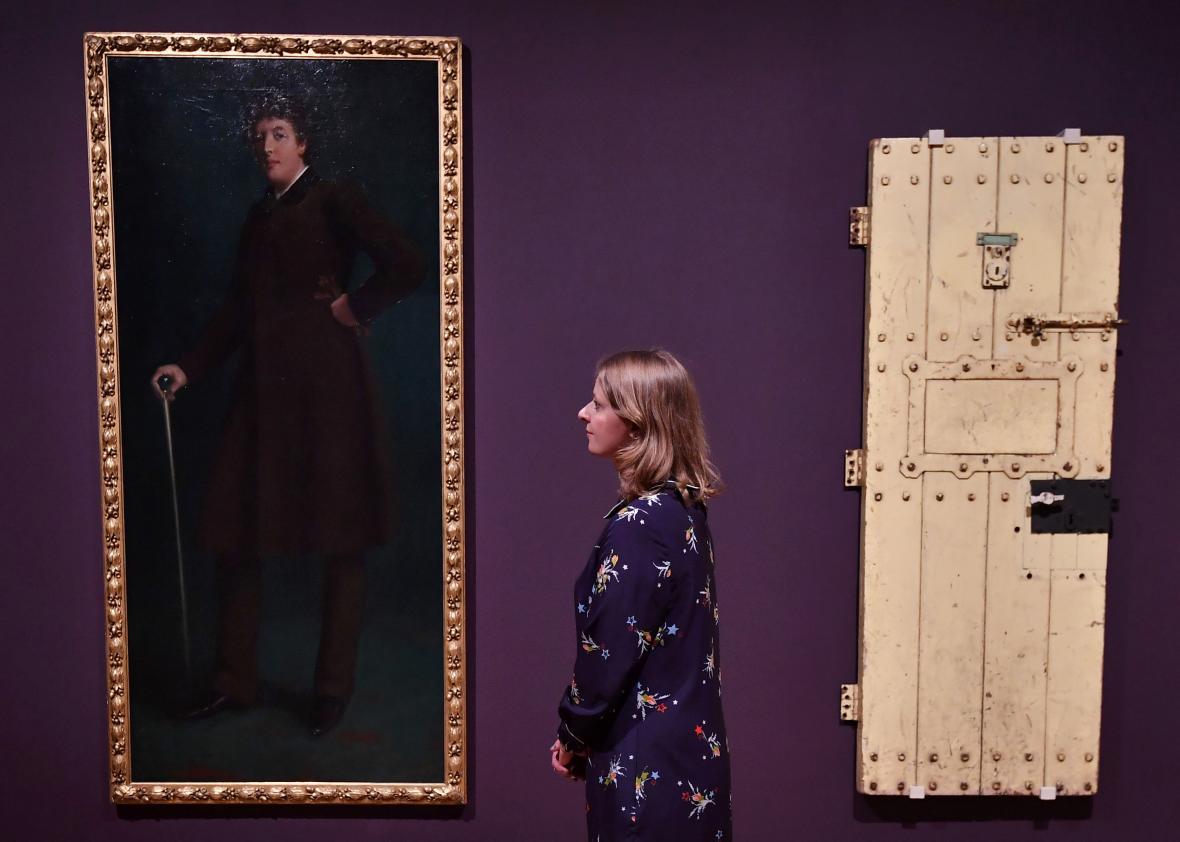I spent most of this past summer living in the U.K. while I finished grad school. I use the term summer loosely: 2017 saw the U.K.’s wettest July in five years, and some tabloids went so far as to call summer officially canceled. But in between getting soaked as I biked home from the library and shivering as I stepped off the tube, there was one great comfort: the explosion of queer voices and stories that overtook British media, in memory of a time when they were explicitly banned.
2017 marks the 50th anniversary of the Sexual Offences Act 1967, which officially decriminalized gay sex in Britain. Although it took until 2000 for the age of consent to be made equal with heterosexual couples, and until 2013 for marriage equality in England, the SOA was still a huge step forward for LGBTQ rights in Britain, bringing an end to years of persecution of gay men and paving the way for everything from transgender rights to same-sex marriage. To mark the occasion, Britain has gone all out to focus the country’s attention on queer narratives, ensuring that the wounds of the country’s homophobic past are not forgotten, while simultaneously celebrating the nation’s vibrant queer culture.
The country’s national broadcaster, the BBC, launched a season of programs called Gay Britannia across TV and radio, showcasing “bold and provocative stories that celebrate the LGBTQ community.” The season included a docudrama called Against the Law that portrayed the arrest of journalist Peter Wildeblood for “buggery” in 1954, a high-profile case that led to a national inquiry on the country’s anti-gay laws and eventually led to decriminalization. By mixing both dramatized storytelling and interviews with real-life gay men who lived through the period, the show created a moving and compelling examination of queer British history. The series also included the two-part series Man in an Orange Shirt, starring Vanessa Redgrave, which tells two intertwined gay love stories in the U.K., one set in the 1940s and one in present day, as well as the documentary Is It Safe to Be Gay in the U.K.? Spoiler alert—it’s not.
The airwaves, too, were filled with queer voices. BBC radio had a bunch of queer programming, such as Queer as Punk, an exploration of the influence of LGBTQ culture on the punk movement, and Inside Transgender Pakistan. Meanwhile, a series of new podcasts also launched in time for the anniversary. These included Attitude Heroes, hosted by the editor in chief of Attitude magazine Matt Cain, in which Cain interviews several gay celebrities including Ian McKellen and Stephen K. Amos. Cain is brilliant: He’s camp and funny, and the episodes are beautifully recorded. The result is some of the most moving and inspiring discussions on gay sexuality and gay history you will hear. Comedian Paul O’Grady’s account of creating his drag persona Lily Savage in the midst of rampant homophobia in the media was both harrowing and hilarious. I’d often listen to the podcast while jogging and found myself bursting into tears on more than one occasion, much to the dismay of the stiff-upper-lip Brits walking by.
Beyond broadcast media, there were a number of arts offerings marking the anniversary as well. The National Theatre presented an absolutely blistering production of Tony Kushner’s Angels in America, starring Andrew Garfield, Nathan Lane, and Russell Tovey. When I went to see the production, the theater was completely packed, and despite the production’s marathon run time, the audience was completely enraptured.
Meanwhile, across the Thames, the Tate Britain put on Queer British Art 1861–1967, an exhibition featuring everything from paintings by David Hockney and Francis Bacon to historical artifacts like the door to Oscar Wilde’s prison cell (which was heartbreakingly tiny). When I went to view the exhibition with my boyfriend, it was moving to see not just the artworks themselves, but also the audience, which was made up mostly of gay men and couples of straight senior citizens. Two demographics who might rarely occupy the same space were here thrown together to confront both dark and fabulous moments in the country’s past.
The explosion of queer visibility felt particularly poignant given what was going on across the pond in my other adopted home. The day of Trump’s inauguration, the White House page on LGBTQ issues was removed. For the first time in eight years, the U.S. president didn’t acknowledge Pride month in June. In July, Trump announced that transgender people would be banned from serving in the military, and, in the same month, the Department of Justice filed court papers arguing that lesbian, gay, and bisexual people are not covered by workplace anti-discrimination laws.
Drawing a direct comparison between the U.S. and the U.K. isn’t necessarily useful—they are vastly different countries with different historical trajectories. And the U.K. still has a far way to go when it comes to LGBTQ rights: The conservative Tory government’s recent alliance with the Northern Irish Democratic Unionist Party is particularly troubling, granting this minority party with an explicitly anti-LGBTQ history an outsize role in British politics so that Theresa May can stay in power. But traveling between the two, the contrast was inescapable. For this (white, male, cisgender) queer, the U.K.’s cultural barometer felt well and truly shifted in favor of equality.
By drawing national attention to the errors in the country’s homophobic past, and celebrating its queer present, Britain has taken great steps toward preventing such mistakes from repeating, and, unlike in the U.S., ensured that, no matter the party in power, a backtrack on equality is simply unthinkable. As the 50th anniversary of the Stonewall riots approaches in the U.S., and as queer rights come under a renewed attack, it is high time to ignite a queer American cultural blitz. As in Britain, we should revisit the dark past, filling airwaves and screens with queer voices that will not be silenced, and steering the country toward a better, more fabulous future.
